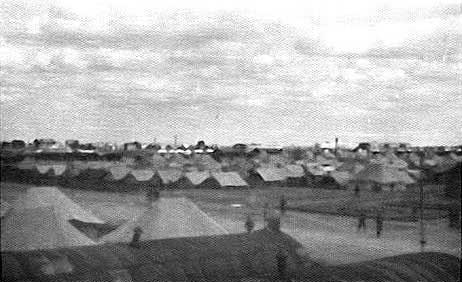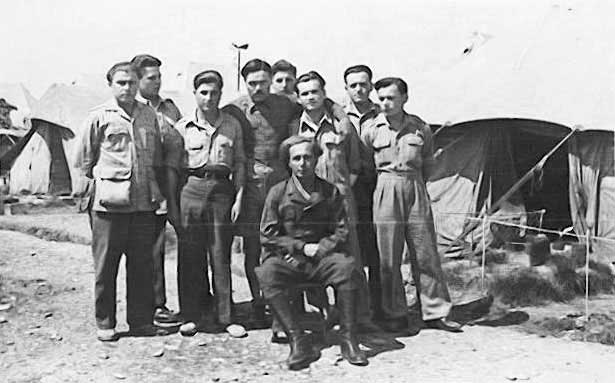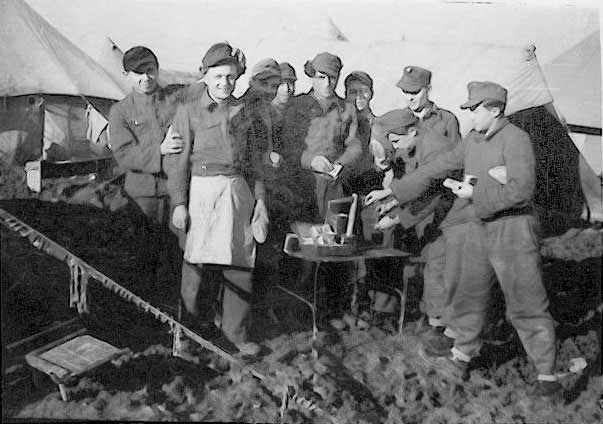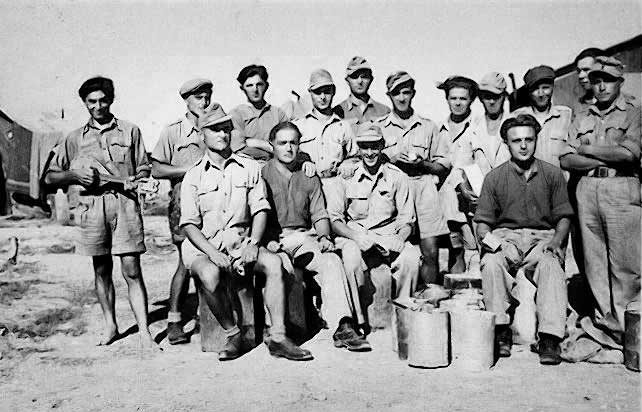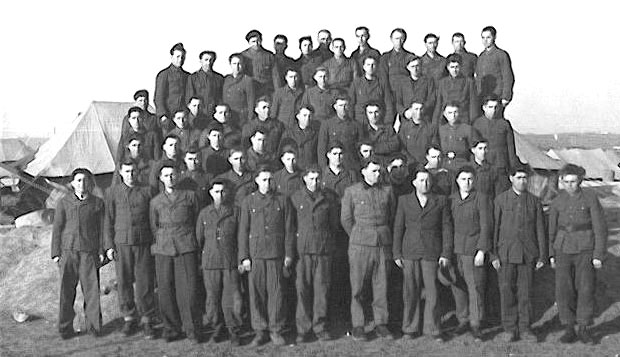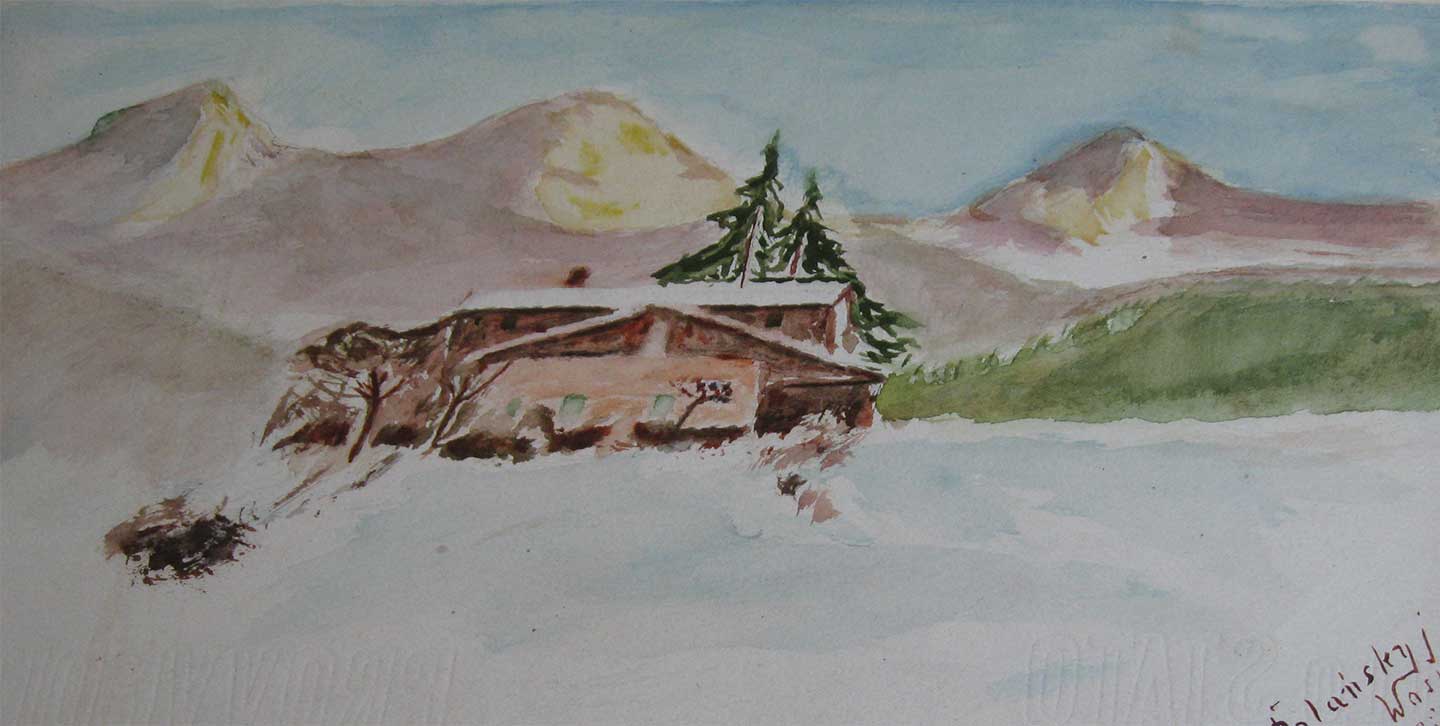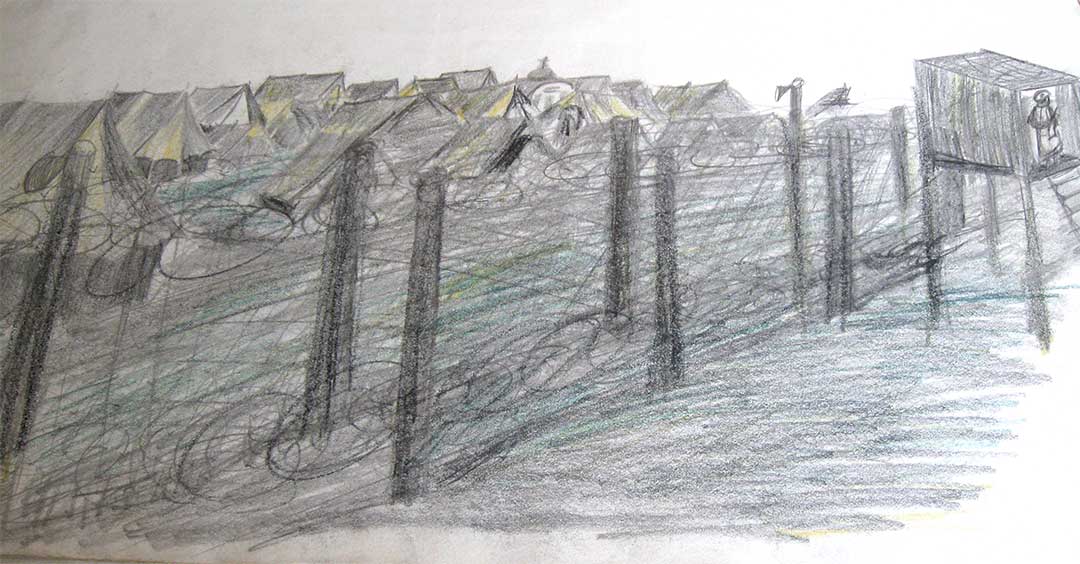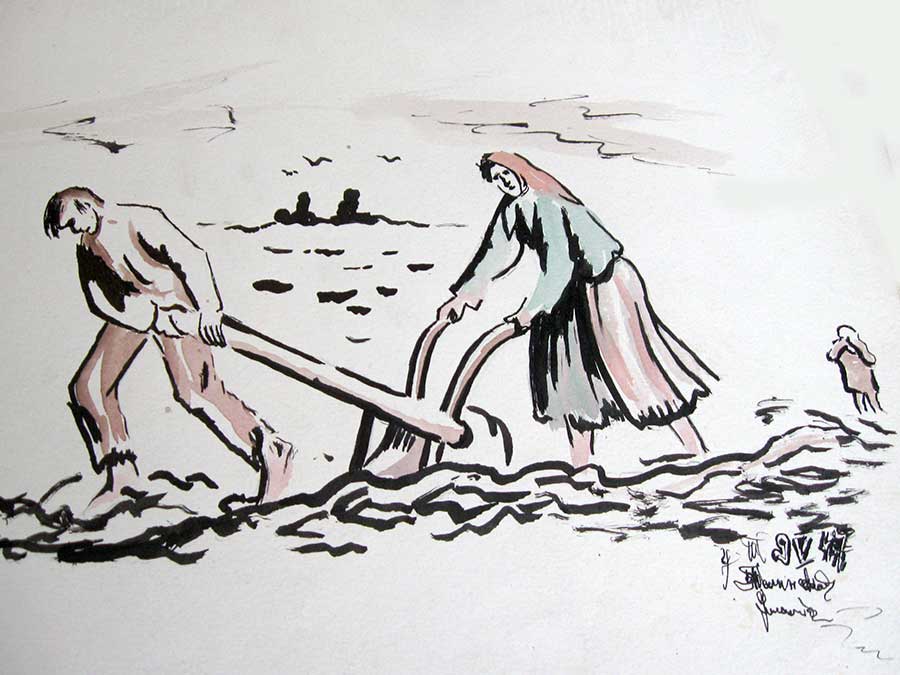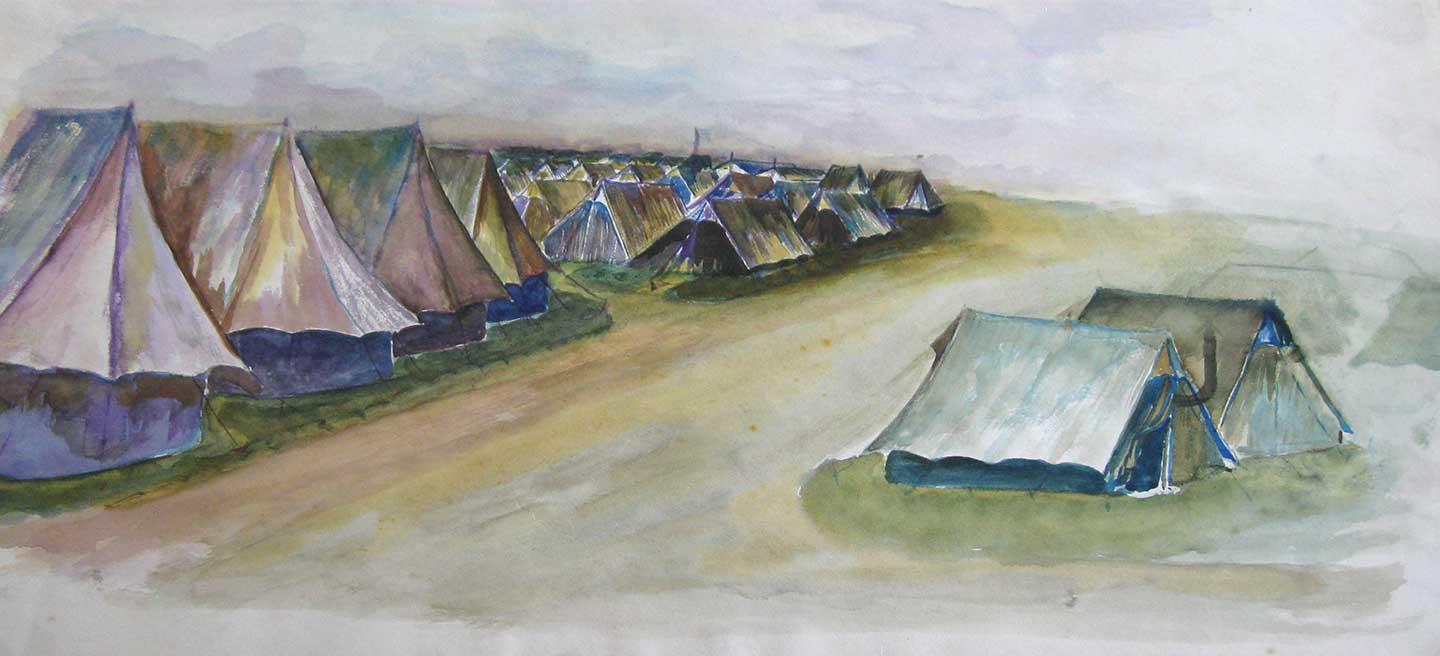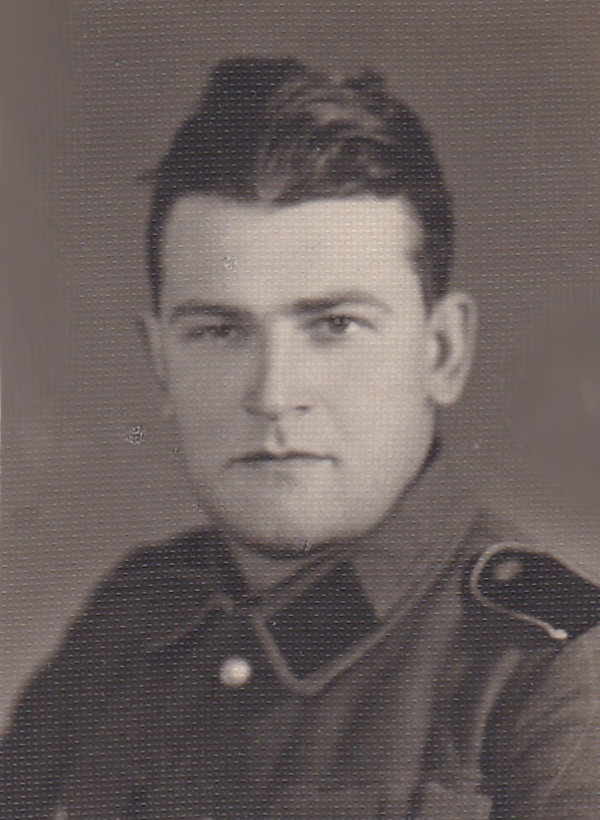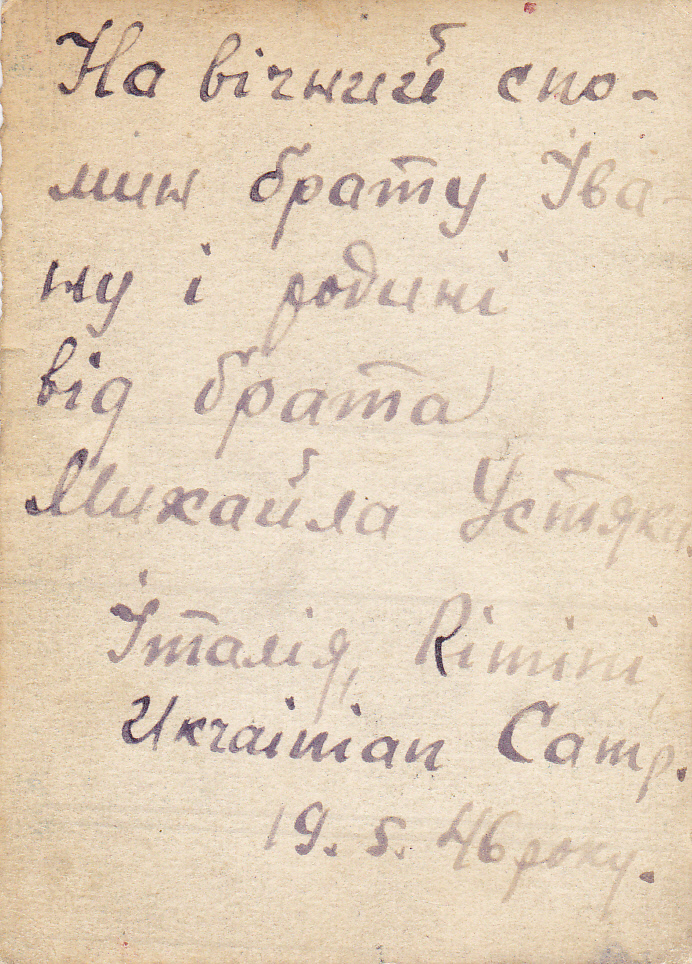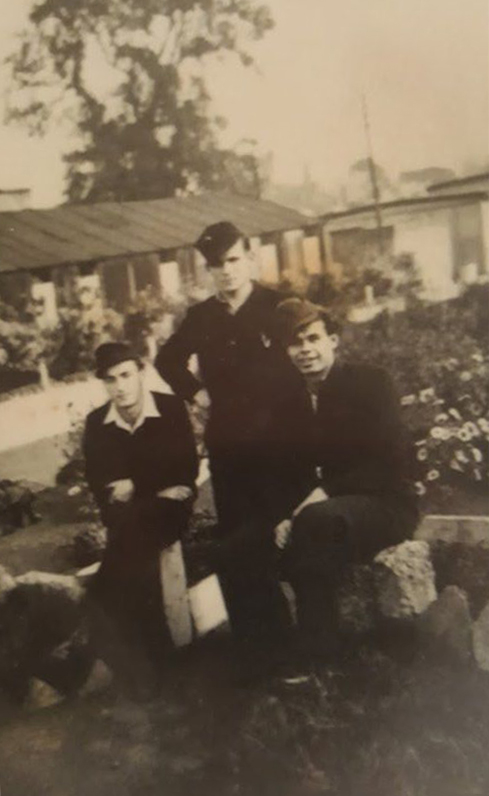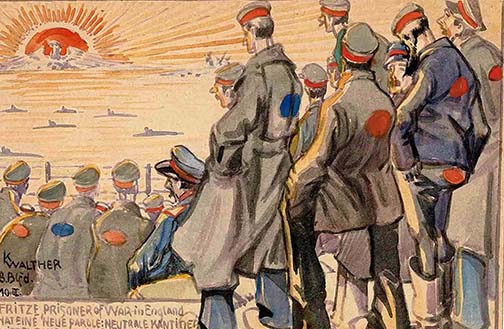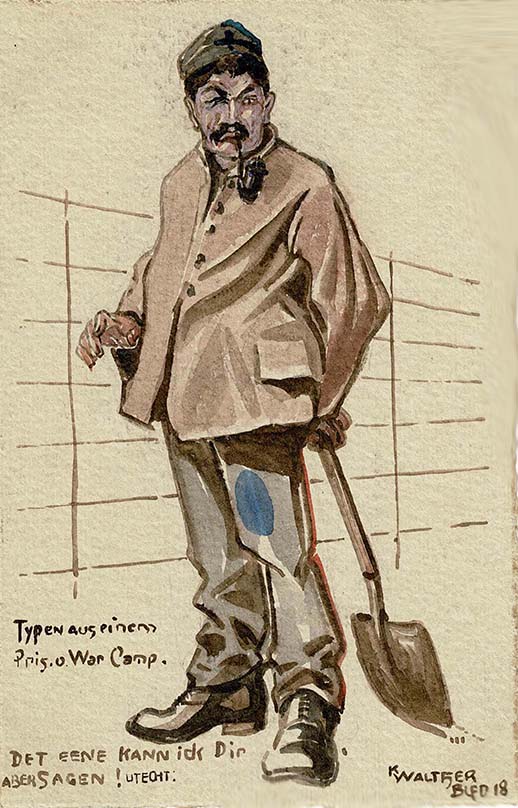Rimini is near Rome
7,100 Ukrainians came to Britain in 1947 after spending two years as prisoners of war in the Italian coastal town of Rimini.
Archives: FORLI, CESENA and RIMINI
Archivio di Stato di Forli
Via dei Gerolimini 6
47100 Forli
ITALIA
phone: 054 33 1217
fax: 054 33 1678
"...Dr Smylski was very interested in the fate of Ukrainian servicemen and civilians displaced by the war... Dr Smylski helped draft, print and distribute a pamphlet to the United Nations pleading the DP's case. This caught the attention of Eleanor Roosevelt, US delegate to the United Nations, who urged the Yalta Agreement be reviewed.
Peter happened upon the Rimini camp after talking pilot Joe Romanow into letting him come on a flight to Rome. Peter discovered at the camp about 9000 Ukrainian soldiers from the 1st Ukrainian Division of the Ukrainian National Army, who fought with Germany against the Russians, and were being held there as prisoners of war after being badly defeated by the Soviet army at Brody, Ukraine in 1944.
Peter saw the need to help these people avoid an uncertain fate at the hands of the Soviets. Dr Smylski gained the support of the British, and after several months these POWs were taken to England as free citizens. Most then moved to North America. Dr Smylski and fellow Ukrainians from Canada continued to push to allow Ukrainians in DP camps all across Germany to emigrate to the West, and many did, due in part to these efforts." Submitted by Alan Newark, from: http://www.infoukes.com
10/6/06
Olga
Just found your very intersting site.
My father was in the Rimini camp before coming to the UK.
Here are a few photos of what I believe to be the camp that I would like to
submit to your site.
Regards
David Charysz [email protected]
David's father far right, dated May 1946 ,David's father standing far right
5) Dated 27April 1947 6) I was looking at the pictures you have of the Ukrainian POW camp in Rimini and saw my dad on one, possibly two of them. My dad is standing on the right. His name was Semen (Simon) Bashta, born in 1915 in Bujaniv, Zhydachiv, south of Lviv. He went to the UK following the war and eventually died there in 1981.
He could also possibly be on the photo 3. That could be my dad just standing behind. It's hard to tell as the quality isn't that great, but it certainly looks a lot like him.
Regards,
Janet Gwynn [email protected]
7) Andrew (Andrij) Rewt, fourth along from the left at the back
If anyone recognizes their father in these photos, write us so we can update the captions.Sep. 11, 2014
Here are some drawings done by Vasyl Polansky. He was born in the village Czystohorb, close to Komancha (Komancza). He did these drawings while he was in the Rimini Camp. Also my Uncle Andriy Feshanich, from the same village, was in this camp.
Dianne Melnyk [email protected]
Tons of photos Rimini book amazing: http://history.org.ua
2/18/2020 Hi Olga,
I just noticed on the Rimini DP Camp website, a new photograph. And, much to my surprise, my Father is on the photo !!! The photo is a group photo, 3 rows of men ... my Father is on the front row, in the middle, sat crossed legged. On his Identity Card, that I have, he’s wearing the same uniform. My father was Stefan Gruszeckyj, born in a village called Svitanok in 1922, near to Ivano Frankivsk.
His identity papers state he was in Rimini SEP Cage 1. He originally wanted to emigrate to Canada, but he landed in the UK; in Pingley POW Camp in Brigg. After a few years he ended up in Warwickshire, working on a farm in a village called Long Compton. We lived in and around Stratford on Avon. Unfortunately Dad passed away a few years ago.
I am absolutely convinced my Dad's long friend is also in the photograph; on the front row; 2 in from L to R is Andy Kopanycia. They were good friends for many many years, and always lived very near each other. Many thanks, Derek Gruszeckyj.
[email protected]
The family has no other history just the photo. On the far right is:
Ivan Kohut Born 22 April 1922 village Konushki in Rohatyn rayon Ivano-Frankivsk oblast•
Ivan Kohut died 11 Jan 1981 in Northampton, England.
He moved there after Rimini and married Beatrice Howse
on 20 Aug 1949 and later married Nina Andrikevich.
(She moved to the U.S. after he died.) Other men in photo unknown. Photo submitted by Amanda Jane Rogers
Dianne sent these links for you:
Between Hitler and Stalin
http://www.ucrdc.org
http://ca.images.search.yahoo.com
6/1/2019 I wrote to England to find out once and for all about the Riiimini lists. This is what I received:
Hello Dianne,
Thank you for your e-mail.
•
The Rimini List is in the possession of the Archive collection and not in the public domain. It contains thousands of names and is not something that our Archive is sending off or providing copies.
Archive can check if your father was a member of the Division or not and send the information to you.•
There is a £40 fee for such service. It can be paid by cheque, card or transfer money to the AUGB account.•
If you would like to go ahead with this please let me know. You can fill the form https://www.augb.co.uk
send me your father’s details.
Thank you.
Kind regards,
Ludmila
Dr Ludmila Pekarska
Curator
The Shevchenko Library & Archive
AUGB.CO.UK
https://www.augb.co.uk
Nov 14, 2018
Hello Olga,
My mother had a collection of original drawings, from her Father. Our family history is sketchy, but I believe my Grandfather, Wilhelm Dickhuth was imprisoned in the Rimini POW camp, along with a well known German painter, Karl Walther. My Grandfather ended up with about 30 drawings, which I believe were sent to my mother when my grandfather died. (He was in Germany, my mother was in the United States.) These drawings were done on postcard stock, from postcards handed to the prisoners to send to their families. (The fronts were blank, the backs had instructions in German.)
I showed these to Karl Walther’s son, Therdor, but he doesn’t think it looks like his father’s work. I am on my way to Munich, bringing the art to a gallery to assess. These cards are impressive, and I believe important. But, to where, or who, I don’t know.
Any comments, advice, would be much appreciated.
Steve Dutton [email protected]
1) Fritze Prisoner of War in England - “Group wonders if the motherland remembers them”
2) Type one prisoner which was in camp - "But I can tell you something!"
My father, Mychajlo Prokopeczko, was born in 1920 (died 1995) and he was Ukrainian, born in Pniv. He was in the Ukrainian POW camp in Rimini, Italy. At the end of World War II he was shipped to England where I was born. The name became Anglicised to Proctor. I'm researching his WW2 movements are there any records from the POW camp in Rimini that might detail my father's stay? Regards Steve Proctor
My grandfather, Mychaljo Czuczman, was also at the camp in Rimini. I don't have exact details yet, but he arrived in the UK and ended up at a 'camp' or farm near Longtown, near Carlisle in Cumbria, where he met my and married my grandmother. Leigh
Hi
I'm trying to find out more about my Ukrainian father's history at the end
of and after the war. He told me that he was in a camp in Italy but I have
no further details. I am interested to know how to go about finding out
if he was in Rimini and which military force he served in in Ukraine. My
father's name was Hryhorij
Kliszcz. Many thanks in anticipation, Terry Kliszcz
Hello Olga,
For a long time, I'm waiting for a answer about the history of the Ukrainian
National Army (SS Galicia Division). Wolf-Dietrich Heike, a high ranking
German officer of this unit wrote in his book, that 22,000 men of the Ukrainian
National Army surrendered to the Allied troops in spring 1945 in Austria.
The Militärgeschichtliche Forschungsamt (military investigation center)
at Potsdam / Germany, MFGA, told me also, that the Divison had 22,000 men
at the end of the war. It is for sure that 7,100 men of the Ukrainian National
Army came to the DP-camp Rimini under British control. In 1960 the National
Archives in London offered any surviving personel records to the German
Federal Government. All transferred records were relocated to the Deutsche
Dienststelle (WASt) in Berlin. From the Deutsche Dienststelle (WASt) I
got the information, that about 7,100
men of the Ukrainian National Army are listed in the "Nominal rolls of Ukrainian
personel held in Rimini". But
the Deutsche Dienststelle is not able to tell me where the rest of the division
went to. If the total of 22,000
men is the real number and 7,100 have been at Rimini DP camp ,
I ask myself, what happened to about 15,000 men of the Ukrainian National Army?
This is the biggest part of this army and DP camp Rimini is just a part of the history. I want to find out the rest of the history and as long I get no official information about the destiny of these men, I believe that the camp Ban Saint Jean is the place where the history of these men ends. Maybe you can help me to find the truth. Do you know any person who can answer this question? Do you have any other possibilities to find informations for answering this question? With regards, Roland Zimmer, [email protected] /Germany
The University of Minnesota also sells microfilms of the Rimini camp newspaper. Here's the address to order the microfilm:
http://www1.umn.edu
There is also a very good book The Refugee Experience: Ukrainian Displaced Persons after World War II, ISBN 0-920862-85-3. The book deals with all DPs and not just those from the Galicia Division. The Panchuk Collection was cited as reference several times.
Sandy,10/1/04 My father was in this camp, Iwan Emicz, but the surname was wrongly translated to Jemicz after in arrived in the UK in 1947.If anyone has any information that can confirm this or whereabouts of details about the Ukrainian division of the German Army this would be a great help in tracing my father's whereabouts during 1941-1944. thank you Maria Jemicz [email protected]
10/31/04 Olga,
Hi I am hoping you will be able to help point me in the right direction. We are trying to find out about my husband's late father's life. We know very little of his past prior to coming to England for obvious reasons. He was Ukrainian and born in Kolomyja. We have what we believe is an identity card and the last address on it puts him at Heiligenbeil, which we understand is a sub camp of Stutthof. We know that he was in Rimini Italy after the War and we are wondering if he would have been in the DP camp. His name was Stefan
Czornenkyj. I would be so grateful if you could point us in the right direction.
Thank you for your great work. Julie Czornenkyj / UK
3/12/05 Hello Olga,
My name is Nowraz Zakaev and I'm searching for any possible records on my father
(Yla
Etec Zakaev) and his people who were detained in the prisoner and refugee
camps in Italy by the British Forces between 1945-1948. There were about 200
of our people who passed through the camps at Rimini. We are Circassians by ethnicity
and not Russian. If you know how I can gather any documents or photos, it would
be unbelievable. By the way, your Web site information is sacred and vital to
all who had family members displaced at a sad time in there lives. God bless
you Olga, Nowraz Zakaev / [email protected] Student of Cultural Anthropology
1/29/05 Hi Olga
I was very interested in looking at your site as I am trying to understand
what my grandfather went through during WW2. He was a Ukrainian soldier from
the 1st Ukrainian Division of the Ukrainian National Army, who fought with
Germany against the Russians, and was held in Rimini as prisoners of war. From
here he was sent to England, settling in Lincolnshire where he met my grandmother.
I would love to find out more about this part of his life as I know very little. Are there any websites where I can find out how he came to England, names of ships or details of how they were captured and sent to Rimini.
It is a very broad request, but I know very little at the minute.
Regards Adrian Richards [email protected]/ United Kingdom
12/13/06 Hi Olga
Thanks for your site I showed the
pictures to my father who was an NCO in the Rimini camp and he is fourth along
from the left at the back on the large photo. He is still alive and a
very happy 83 year old and is called Andrew (Andrij)
Rewt from Koniow, Galicia. He
fought at Brody and thereafter in Yugoslavia, he was then a DP in Amisfield
Camp in Haddington in Scotland and may be able to help others locate their
family members. I am looking for family that may have relocated to Odessa
after persecution. Any help and I would be very grateful. Thanks in advance,
Geoff Rewt, [email protected]
Italian search engine: http://search.virgilio.it/
